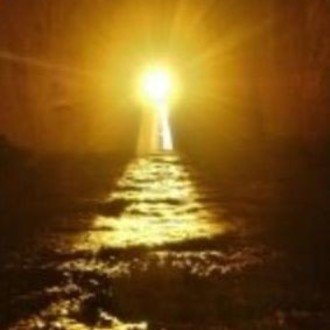
[英詩]Keats, 'Ode to a Nightingale'
※ 旧「英詩が読めるようになるマガジン」(2016年3月1日—2022年11月30日)の記事の避難先マガジンです。リンク先は順次修正してゆきます。
ディランの 'Not Dark Yet' を読むためにどうしてもキーツのこの詩を読んでおかなければならないので、今回はこれを読みます。
※英詩が読めるようになるマガジンの本配信です。詩の基礎知識・書かれた詩・歌われる詩の三本を毎月お届けしています。このところボブ・ディランの詩を解明することを目標にやっています。ちなみに、日本ではたぶんほかにそういうことをやっている試みは現時点ではないと思います。もしあればお知らせください。コメント等がありましたら、「[英詩]コメント用ノート(201701)」へどうぞ。
ディランを読むことは現代詩の最高峰を同時代において読むことです。これにまさる詩的体験はそうはないと思います。
***
最初にキーツについて。ジョン・キーツは英国ロマン派の最高の詩人のひとりです。ボブ・ディランはシェークスピア級の(或いはそれを上回る)幅を備えた詩人ですが、キーツも視野に入れています。
そのことを雄弁に論証したのがリクス(Christopher Ricks)です。ディランにおける罪の概念を詳細に論じた研究書で、堅忍(fortitude)を説く章の最後で、ディランの 'Not Dark Yet' とキーツの 'Ode to a Nightingale' の長大な比較分析をしています。
_/_/_/
詩テクスト
Ode to a Nightingale
John Keats
I
My heart aches, and a drowsy numbness pains
My sense, as though of hemlock I had drunk,
Or emptied some dull opiate to the drains
One minute past, and Lethe-wards had sunk:
'Tis not through envy of thy happy lot, 5
But being too happy in thine happiness,—
That thou, light-wingèd Dryad of the trees
In some melodious plot
Of beechen green, and shadows numberless,
Singest of summer in full-throated ease. 10
II
O, for a draught of vintage! that hath been
Cooled a long age in the deep-delvèd earth,
Tasting of Flora and the country green,
Dance, and Provençal song, and sunburnt mirth!
O for a beaker full of the warm South, 15
Full of the true, the blushful Hippocrene,
With beaded bubbles winking at the brim,
And purple-stainèd mouth;
That I might drink, and leave the world unseen,
And with thee fade away into the forest dim: 20
III
Fade far away, dissolve, and quite forget
What thou among the leaves hast never known,
The weariness, the fever, and the fret
Here, where men sit and hear each other groan;
Where palsy shakes a few, sad, last gray hairs, 25
Where youth grows pale, and spectre-thin, and dies;
Where but to think is to be full of sorrow
And leaden-eyed despairs,
Where Beauty cannot keep her lustrous eyes,
Or new Love pine at them beyond to-morrow. 30
IV
Away! away! for I will fly to thee,
Not charioted by Bacchus and his pards,
But on the viewless wings of Poesy,
Though the dull brain perplexes and retards:
Already with thee! tender is the night, 35
And haply the Queen-Moon is on her throne,
Cluster'd around by all her starry Fays;
But here there is no light,
Save what from heaven is with the breezes blown
Through verdurous glooms and winding mossy ways. 40
V
I cannot see what flowers are at my feet,
Nor what soft incense hangs upon the boughs,
But, in embalmèd darkness, guess each sweet
Wherewith the seasonable month endows
The grass, the thicket, and the fruit-tree wild; 45
White hawthorn, and the pastoral eglantine;
Fast fading violets cover'd up in leaves;
And mid-May's eldest child,
The coming musk-rose, full of dewy wine,
The murmurous haunt of flies on summer eves. 50
VI
Darkling, I listen; and, for many a time
I have been half in love with easeful Death,
Called him soft names in many a musèd rhyme,
To take into the air my quiet breath;
Now more than ever seems it rich to die, 55
To cease upon the midnight with no pain,
While thou art pouring forth thy soul abroad
In such an ecstasy!
Still wouldst thou sing, and I have ears in vain—
To thy high requiem become a sod. 60
VII
Thou wast not born for death, immortal Bird!
No hungry generations tread thee down;
The voice I hear this passing night was heard
In ancient days by emperor and clown:
Perhaps the self-same song that found a path 65
Through the sad heart of Ruth, when, sick for home,
She stood in tears amid the alien corn;
The same that oft-times hath
Charmed magic casements, opening on the foam
Of perilous seas, in faery lands forlorn. 70
VIII
Forlorn! the very word is like a bell
To toll me back from thee to my sole self!
Adieu! the fancy cannot cheat so well
As she is fam'd to do, deceiving elf.
Adieu! adieu! thy plaintive anthem fades 75
Past the near meadows, over the still stream,
Up the hill-side; and now 'tis buried deep
In the next valley-glades:
Was it a vision, or a waking dream?
Fled is that music:—Do I wake or sleep? 80
Notes
Written May 1819.
2 hemlock hemlock can be used as a sedative.
3 emptied . . . to the drains drained to the dregs. A forced expression for the sake of the rhyme.
14 Merry-making at the annual grape-gathering.
15 warm South metonymy. Wine from the South.
19 leave the world unseen unseen by the world and perhaps as a secondary meaning not seeing the world.
33 viewless invisible.
36 haply perhaps.
43 embalmèd darkness darkness steeped in scents.
(Notes from Miriam Allott, 'Keats the Complete Poems', Longman, 1970, pp. 523-532.)
_/_/_/
日本語訳
今回は出口保夫氏のすぐれた翻訳を用います。『キーツ全詩集2』(白凰社、1974)より。この本は現在は残念ながら入手困難です。
小夜啼き鳥に寄せるうた
ジョン・キーツ
この記事が気に入ったらサポートをしてみませんか?

